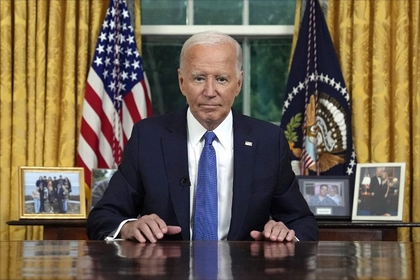It has been nearly two years since Russia launched the full-scale invasion of Ukraine, and the war continues to rage despite global condemnation and sanctions. While over 1000 major companies quickly withdrew from Russia in response to the invasion, some prominent Western brands have stubbornly clung to the Russian market, even though 79.7% of consumers state that they would not buy products from brands that support the war against Ukraine. As concerned citizens: Why do certain brands continue operations in Russia, against their Western clients’ demand? And what we, consumers, do to encourage brands to make the right, ethically sound business decisions?
Companies like Procter & Gamble, Mondelez, and many more, have failed to fully exit Russia despite widespread calls to isolate the aggressor state both economically and politically. Offering vague justifications around humanitarian aid or employment obligations, they turn a blind eye to how their tax contributions and business activity prop up the Russian economy that feeds its military industry. Hesitation also appears a poor business strategy as stricter state laws pressure indecisive brands to commit one way or the other, meaning continuing operations in Russia makes it more difficult to leave over time, financially as well as legally.
JOIN US ON TELEGRAM
Follow our coverage of the war on the @Kyivpost_official.
As public sentiment overwhelmingly opposes backing the invader, remaining tied to Russia long-term also poses substantial reputational risks as public awareness of where companies stand grows. Despite this, some corporations may still be refusing to withdraw due to short-sighted opportunism.

‘The Bosses Live on Another Planet’ – Ukraine at War Update for July 24
Alarmingly, it would seem that some companies have remained in Russia as they hope to expand their market share as other businesses closed their doors in opposition to Russia’s aggression. Does it really need to be said that, while lost revenues are an obvious consideration, the human costs of enabling violence cannot be quantified and should always outweigh economic factors?
Indeed, every dollar spent on brands in Russia indirectly funds the violence against Ukraine. Shareholders in responsible investment funds are rightly concerned about complicit holdings, and as American taxpayer money contributes to the Ukrainian defense, brands paying taxes in Russia work directly against that effort.
Among the organizations that have appeared, to provide transparency and inform consumers about corporations' work in Russia, is PissedConsumers.com which regularly updates "Russia Status" on brands’ profiles, labeling each company's stance: Whether they remain in the Russian market.
Aside from highlighting brands to boycott, a model for how concerned citizens can voice their concerns to powerful companies, PissedConsumer closely tracks the activities of companies remaining in Russia and shares updates with its millions of monthly visitors. The website acts as a vehicle of grassroots activism as consumers can directly email companies and inquire about their motivation to stay in Russia. With increasing numbers of citizens voicing their opinions, companies are forced to rethink their hypothesis that staying in Russia will equate to only more profit.
Brands need to be made constantly aware that, while exiting Russia imposes unavoidable losses in the short term, remaining only risks far greater consequences through reputational damage, consumer abandonment, and a serious blow to trust that may take them decades to recover from. Companies have a choice: Put profit or people first – the consumers are clear about what they want.
Michael Podolsky
An American entrepreneur with Ukrainian origins, expert in customer service, and reputation management, and a proactive advocate of consumer rights and freedom of speech. CEO and Co-founder of PissedConsumer.com. Twitter: @m_podolsky
The views expressed are the author’s and not necessarily those of Kyiv Post.
You can also highlight the text and press Ctrl + Enter






